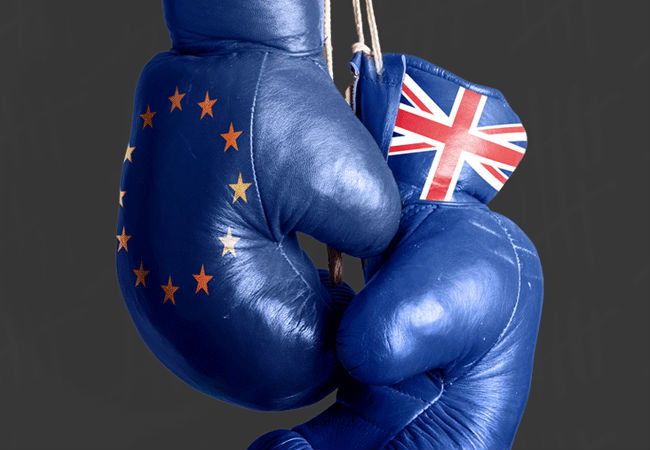As the polls remain divided and some voters still undecided, Sir Stephen Wall, our Chief Adviser on Europe explores the most likely effects of a vote leave result.
The bookies are still making ‘Remain’ the favourites to win the 23 June referendum, but the odds moved slightly towards the Leave campaign last week. If voter intentions hold, then turnout will be high, though some 15-20% of voters declare themselves undecided and I suspect that many will remain so until the last minute. 21% of Conservative voters say they have yet to decide. Equivalent figures for Labour and LibDem supporters are at 14% and 12% respectively. It is no surprise that only 4% of UKIP supporters remain undecided. The relatively strong performance of UKIP in last week’s local elections suggests to me that the issue of immigration will have a bigger determining effect on how many people vote than will be publicly admitted. The UKIP phenomenon, which started as a Tory nightmare, showed in Wales its potential impact on Labour in communities which have lost their traditional industries, have seen the decline of the trade union movement and do not see the Labour party as standing up for them.
Voter profiles have not changed since my earlier blog. Voters under 30 divide 73-27% for ‘in’, while voters over 60 divide 63-37% for ‘out’. Older voters are those more likely to vote. Moreover, our creaky polling system means that university students in London or elsewhere, who registered to vote in last week’s election in the town where they are studying, will have to register again if they have returned home after their university exams and intend to vote on 23 June in their home town. The days when universities could provide collective registration for their students have gone.
London, Scotland, Wales and Northern Ireland all show clear majorities for ‘in’, while the English regions are split (NE, East Midlands, NW: in); SE, SW, Yorkshire and Humberside, West Midlands, East Anglia): out. So, London, Scotland, Wales and N Ireland together divide 60-40% to remain while the English regions outside London divide 53-47% to leave. Gibraltar (30,000 inhabitants) will vote massively to remain. They fear a return to closure of the frontier between Gibraltar and Spain, and other punitive pressures, if the UK as a whole votes to leave.
I was at a debate last week where we discussed some of the more likely detailed effects of a vote to leave. All of us on the panel took the view that the rest of the EU would try very hard to prevent the British ‘disease’ from spreading to countries such as Denmark, Sweden, Hungary and maybe others where there would, at the least, be pressures for similar deals to that secured by the British Government; and would try to demonstrate that populist pressures would not prevail. That means that they would be likely to take a tough stand in the negotiations with Britain on the terms of our exit and on our relationship with the EU post-exit. This would not mean no free trade deal on goods but would put us at a disadvantage in keeping our open market access to trade in services, and especially financial services, where we have a significant surplus in our trade with the rest of the EU.
On the whole, we thought that, while Britain would remain a full EU member until we actually left after the (minimum) two year period allowed for under the EU treaties, we would be asked to forgo our presidency of the EU in the second half of 2017, and that it would be hard for the UK to take a stand on draft legislation which would not impact us directly after our departure, even though any legislation on the single market would apply to us regardless, if we seek continued access to that market, as we would need to do.
As far as the European parliament is concerned, would, the British chairs of, for example, the Civil Liberties and Internal Market committees of the European Parliament, be asked to relinquish their roles straight after a negative UK vote, we asked? Very probably.
Once we had actually left the EU, we thought it likely that there would be a majority, possibly in the Council, and certainly in the European Parliament, in favour of the financial transaction tax which has so far been successfully resisted, not least because of British opposition. In general, the hand of traditionally protectionist Member States would be strengthened by Britain’s departure, not just because British votes would be absent, but because the UK would no longer be available as a rallying point (or a shield) for smaller liberally-minded Member States faced with pressure from larger neighbours. We thought that, even before we left the EU, our weakness as a member in the departure lounge, would strengthen the hand of those seeking to inject more social regulatory, agricultural and cultural protections into the draft transatlantic trade (TTIP) agreement.
At a separate briefing I attended, experts were predicting the pound at $1.20 following a vote to leave. At another discussion, a participant who had been in a very senior position in the British motor industry suggested that companies with existing factories in the UK would, of course, continue to operate them in the near term, doing whatever was necessary to try to maintain competitiveness in the face of any possible tariff barriers. But he thought decisions on future investment in the UK would inevitably be weighted against the UK by our absence from the EU. That seems to be a pretty common view among investors.
Both campaigns will be doing ‘relaunches’ now that the local elections are over. The Labour Party (whose supporters account for nearly half of the likely ‘Remain’ vote) promised an all-out effort once last week’s elections were over. Given the travails of the Labour Party, that is a space to watch.

